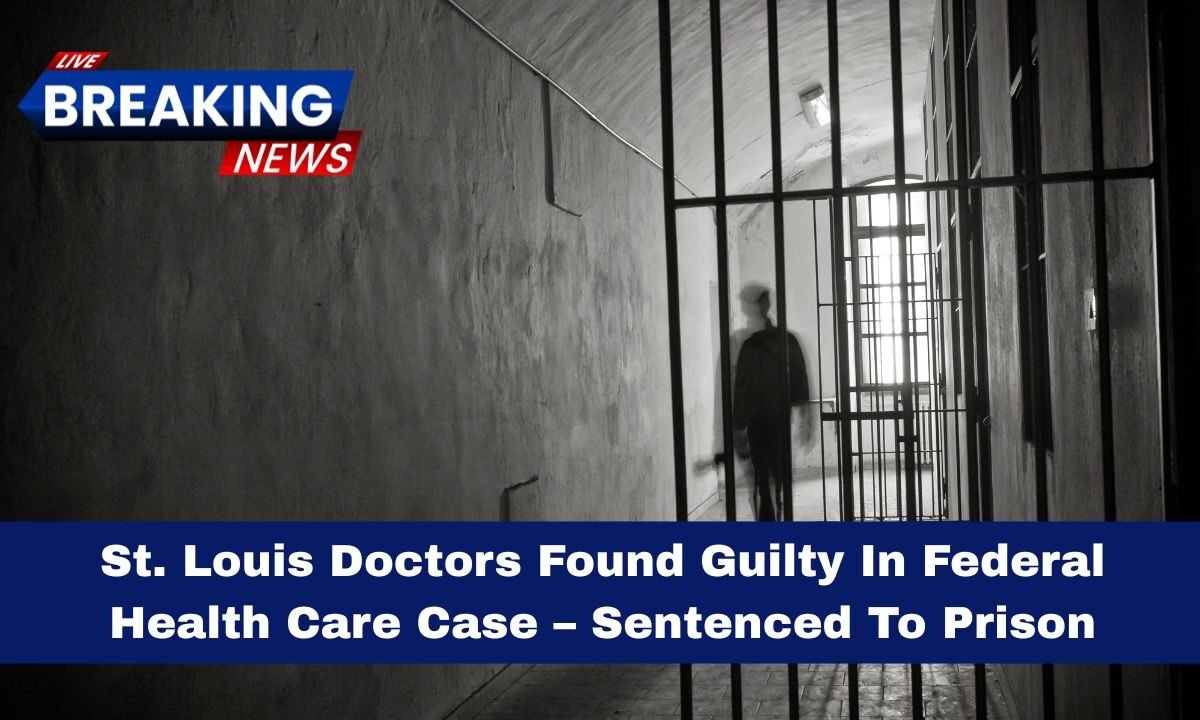Two St. Louis area doctors have been found guilty in separate federal health care cases, resulting in serious penalties, prison time, and financial restitution.
These cases highlight the government’s efforts to crack down on health care fraud, which not only costs taxpayers millions of dollars but also puts patients at risk.
Both doctors faced charges tied to fraudulent billing practices, false statements, and misuse of controlled substances, leading to some of the most notable convictions in the region this year.
Case Overview
The cases involved two doctors:
| Doctor | Age | Charges | Sentence / Penalty |
|---|---|---|---|
| Dr. Asim Muhammad Ali | 54 | Health care fraud, false billing, conspiracy, and illegal administration of drugs | 70 months in prison, ~$1.85M + ~$3.9K restitution |
| Dr. Mohd Azfar Malik | 71 | Making false statements, billing for services not performed, misuse of Medicare numbers | 5 years probation, $20,000 fine, $19,442 restitution |
Dr. Asim Muhammad Ali – Fraud and Illegal Prescriptions
Dr. Ali, 54, was sentenced to 70 months in federal prison after admitting to a wide-ranging fraud scheme.
- He submitted fraudulent claims to Medicaid and Medicare using another doctor’s billing number.
- In many cases, he billed for in-person services that never happened. Instead, he conducted phone calls and simple check-ins, disguising them as full assessments.
- He also performed medical procedures, including intravenous ketamine infusions, despite lacking the proper registration to handle controlled substances.
- His fraudulent activities spanned multiple years and involved the use of deception to collect more than $1.85 million in unlawful payments.
In addition to his prison sentence, Dr. Ali was ordered to pay back nearly $1.85 million in restitution, along with an extra $3,902 tied to more recent fraud.
Dr. Mohd Azfar Malik – False Billing and Misrepresentation
Dr. Malik, 71, admitted to submitting false statements related to health care billing.
- He billed Medicare, Medicaid, and private insurers for in-person services while he was out of state or even out of the country.
- He allowed another doctor to use his name and billing credentials while not present.
- In one case, while he was in Hawaii, another doctor carried out a procedure under Malik’s billing details.
- He agreed to surrender his DEA registrations, which allowed him to prescribe and administer controlled substances.
Dr. Malik was sentenced to five years of probation, fined $20,000, and ordered to pay $19,442 in restitution. His case highlights how false statements, even without direct patient harm, carry serious legal consequences.
Why These Convictions Matter
1. Protecting Patients
Fraudulent billing and unauthorized medical procedures put patients at risk. These convictions serve as a warning to other professionals who might consider cutting corners.
2. Safeguarding Taxpayer Funds
Medicare and Medicaid fraud costs billions annually. Prosecuting cases like these ensures taxpayer money is used for legitimate care.
3. Restoring Trust in Health Care
Cases like this undermine the trust between patients and providers. By holding offenders accountable, the justice system reinforces that ethics in medicine are non-negotiable.
Preventing Similar Cases in the Future
To avoid future fraud:
- Stricter Oversight: Regular audits of Medicare and Medicaid billing.
- Tighter Credential Rules: Ensuring doctors cannot share billing numbers without direct oversight.
- Education & Ethics Training: Reinforcing ethical medical practice throughout a doctor’s career.
- Community Awareness: Encouraging patients to question unusual billing or treatment practices.
The sentencing of Dr. Asim Muhammad Ali and Dr. Mohd Azfar Malik marks a critical moment in the fight against health care fraud in St. Louis.
One doctor faces years in federal prison, while the other received probation, fines, and a ban from handling controlled substances.
Both cases send a clear message: health care providers who commit fraud or misuse the system will face severe consequences.
These convictions not only protect taxpayer dollars but also safeguard patients, restore integrity in the health care industry, and act as a warning to others.
By prioritizing accountability and ethics, the justice system has taken an important step toward building a safer, more trustworthy health care system for all.




